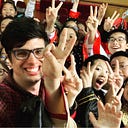Member-only story
China is Not Excited for Disney’s Mulan
A swing and a miss for Disney
We’re only five days away from the September 11th release date of Disney’s Mulan in Mainland China, and Chinese social media is blowing up… but not in a good way.
Chinese social media app (and Twitter equivalent) Weibo has been burning with rage over the makeup, costumes, and other cultural aspects of the film with what they’ve decided is cultural appropriation gone horribly wrong.
Despite Fashionista and In Style gushing over the period-accurate costumes and makeup, Chinese netizens have labeled the attempt at historical accuracy a white-washed Asian dream of Chinese and Japanese histories and myths all rolled into one ugly package.
Photos of court scenes have been shared across Weibo, with users commenting on the way the scene was shot.
Netizens point out that the way the actors are standing and addressing each other in the court isn’t historically or culturally accurate at all. In fact, the way they’re acting is as though they’re in a European castle, not the Emperors palace in ancient China.
